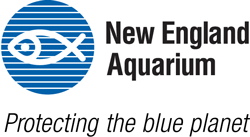
Lowell Lecture
A Changing Antarctica: Studies from the Field
Date & Time
Oct. 24, 2013
Location
New England Aquarium
1 Central Wharf Boston, MA 02110
Driving Directions
Speaker(s)
Johanna Blasi, Visitor Education manager, New England Aquarium
Presenting Organization
Topics
Ecosystems run on a delicate balance with organisms relying on others for survival. In Antarctica, microbes help transform nutrients, phytoplankton feed krill and krill feed penguins and whales. As temperatures rise rapidly over the Western Antarctic Peninsula, the interactions and connections between these organisms is changing. Palmer Long Term Ecological Research (LTER) scientists are working to determine how this change in climate will alter these connections. Aboard the R/V Laurence M. Gould, Johanna worked with a team from Rutgers University utilizing cutting-edge technology to study phytoplankton composition and abundance along nutrient-rich deep sea canyons. As primary producers, phytoplankton anchors the Antarctic food and figuring out changes in phytoplankton dynamics will help scientists determine the future of this icy continent.
This lecture will take place in the Harborside Learning Lab, located in the Ocean Center at the New England Aquarium. For a map of the Aquarium campus, please visit: http://www.neaq.org/visit_planning/maps_directions_and_parking/index.php